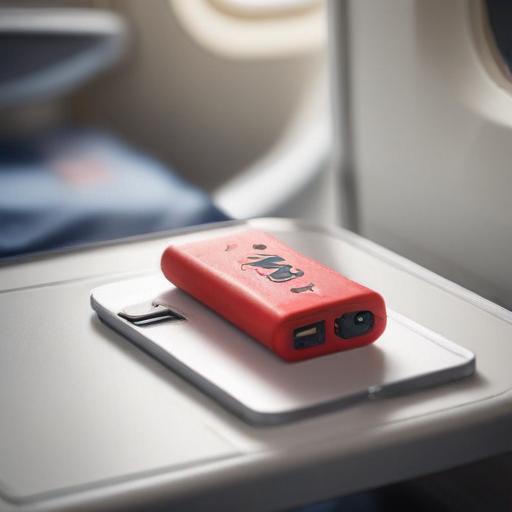Emirates has tightened its policy on power banks, becoming the latest and largest airline to ban their use on board and to restrict charging of devices with external batteries. Starting October 1, passengers will not be allowed to charge devices using power banks, nor to recharge a power bank itself from the plane’s outlets. Each traveler may carry only one power bank, and it must be under 100 Wh and stored either in the seat pocket or in a bag under the seat in front of them—not in the overhead bin.
Emirates, which operates the fourth-largest network in the world by seat miles behind the United States’ Big Three, joins a growing list of carriers that have tightened rules on power banks. Other airlines that have implemented similar restrictions include Southwest Airlines, Lufthansa, Singapore Airlines, and Thai Airways, while authorities in places such as Hong Kong and South Korea have also issued rules governing the use of power banks on flights.
Why the crackdown is spreading
The safety focus on power banks stems from the lithium batteries they contain, which can pose fire risks if damaged, overcharged, or misused. In January, a fire on an Air Busan Airbus A321 before departure highlighted the danger, with 176 people aboard and 27 injured. Investigators pointed to a power bank as the likely cause, prompting regulators to push for tighter controls.
In May, a Southwest flight diverted after a customer’s battery charger overheated on a Baltimore-to-Tampa route. The incident underscored the ongoing risk posed by lithium batteries, even as crews manage in-flight safety protocols. Unlike phones or laptops, many power banks lack robust safeguards against thermal runaway, a rapid, dangerous rise in temperature.
What travelers should know
– The new Emirates rule means power banks cannot be charged on board and cannot be charged via the aircraft’s outlets.
– Only one power bank is allowed per passenger, and it must be under 100 Wh.
– Power banks must be carried in the cabin and stored in the seat area (seat pocket or under the seat in front) rather than in the overhead bin or checked baggage.
– If you rely on power banks for long journeys, plan to carry a compliant unit and be prepared to use alternative charging methods before boarding.
Implications and outlook
Emirates’ decision reflects an ongoing push across the aviation industry to reduce in-flight fire risk linked to lithium batteries. Given Emirates’ position as a major global network, the policy could influence other carriers to review their own rules. For travelers, it’s a reminder to check power-bank specifications and airline policies well before flying and to consider charging devices prior to departure or using airline-approved power sources that meet the 100 Wh guideline.
Additional context and commentary
– The move emphasizes prioritizing passenger safety and operational stability, reducing the chance of lithium battery incidents mid-flight.
– Harmonization of rules remains uneven globally, but there is a clear trend toward stricter limits on spare power banks and on-board charging.
– For travelers with medical or critical communication needs, it may be worthwhile to contact the airline in advance to understand exceptions or alternatives that ensure essential power access while staying within safety guidelines.
Positive takeaway
The aviation industry’s steady tightening of rules around power banks aims to minimize risk and keep flights safer for everyone. By clearly communicating limits and enforcing them consistently, carriers seek to prevent emergencies and keep travel smoother for passengers who plan ahead.
